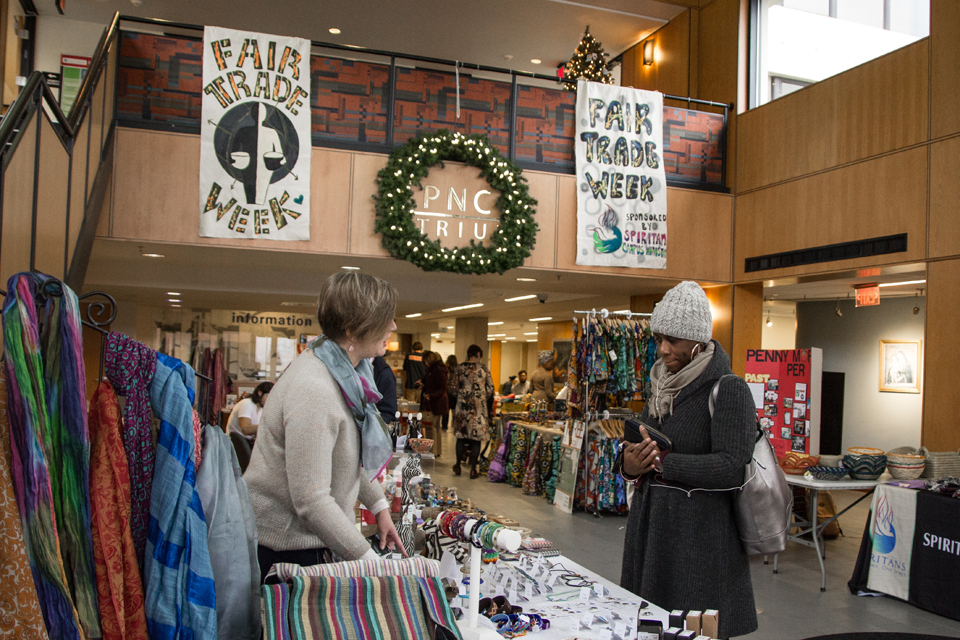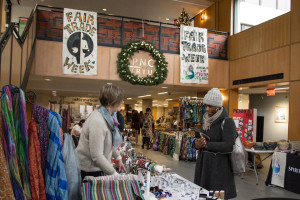

A customer at Duquesne’s Fair Trade Market considers the goods for sale. All of the items at the market were created by workers in developing countries.
By Brandon Addeo | Asst. News Editor
A poor Nicaraguan artisan named Gustavo makes jewelry by hand out of bone, horn, shells and coconuts, with the help of his daughters. For a long time, Gustavo would travel an hour each day on a public bus with his product to sell it at the nearest marketplace, not knowing if he would make enough money to support his family.
Nowadays, Gustavo knows exactly how much money he will make and when, thanks to a social movement called fair trade, which is being celebrated this week at Duquesne.
Spiritan Campus Ministry hosted Fair Trade Week Nov. 30 through Dec. 3. The week was dedicated to promoting awareness of trading practices that emphasize a higher standard of care and pay for workers in developing countries.
At the heart of Fair Trade Week is the Fair Trade Marketplace, where local vendors are selling certified products from foreign artisans at tables in the Duquesne student union.
Kate Lecci, a Spiritan Campus minister, worked with Gustavo in Nicaragua, and can attest to the uncertainty that artisans and farmers can face on a daily basis, without the help of a fair trade agreement.
“It’s like playing the lottery,” she said.
Gustavo entered a contract with a fair trade vendor in Pittsburgh, who places orders every six months, allowing him to make one “giant” delivery instead of making daily trips.
“[Fair trade] allows artisans to be a bit freer in their work but also guarantees income coming in,” Lecci said.
Businesses seeking to adhere to this method can apply with Fair Trade USA to become fair trade certified.
Lecci said this business model promotes “dialogue, transparency and respect” between employers, employees and consumers.
“[Fair trade] focuses on removing the middleman, as you see in conventional production,” Lecci said. “It’s about … paying a fair wage, ensuring safe working conditions, paying promptly and fairly.”
Since its start as a social movement, fair trade has drawn some criticism.
Antony Davies, an economics professor at Duquesne, said fair trade can “unintentionally worsen” the economy of a developing country by interfering with free trade.
“The best way to help the poor in developing countries is not through fair trade but free trade,” Davies said. “Let people freely choose what products to buy and sell and society’s resources will naturally be directed toward those endeavors that make people better off.”
Lecci said she has observed the positive effects of fair trade in person.
“I think it works because I’ve seen it work,” she said. “When you’re working in an ethical manner … people will want to continue working [with you] because they’re being treated fairly.”
In addition to the fair trade marketplace, Spiritan Campus Ministry this week hosted a locally-sourced dinner and fair trade panel, a faculty luncheon and lectures from local business owners and students.




